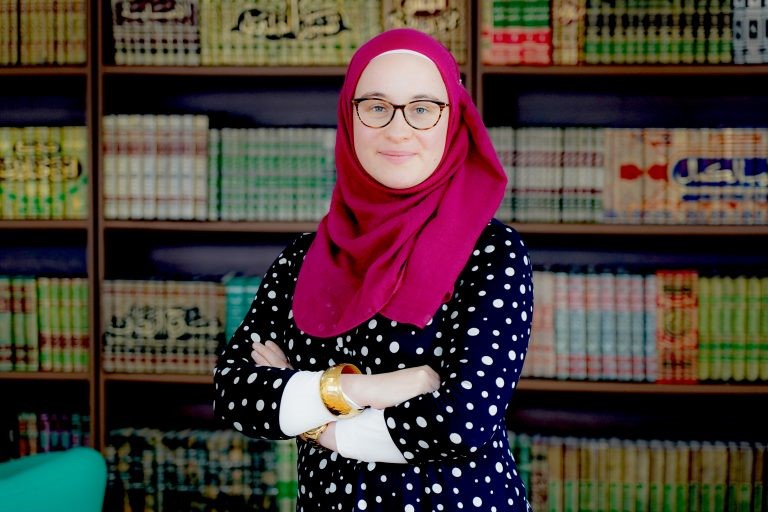Researcher of the Month - June 2022, Dr Jennifer Philippa Eggert

Dr Jennifer Philippa joined the CRPL as Senior Research Fellow in Religion and Development in November 2021. Her position is jointly hosted with the Joint Learning Initiative on Faith and Local Communities (JLI) where she is also Acting Director of Research.
Tell us a little about your ‘research journey’ – how did you get to where you are right now?
I have a BA in Social and Cultural Sciences from the European University Viadrina in Germany (and studied one year at Sciences Po Paris as part of my degree), an MSc in Conflict Studies from the LSE, and a PhD in Politics and International studies from the University of Warwick. During my undergrad I mostly focused on religion and politics, before working on gender and violent conflict in my MSc and PhD. I had worked for NGOs in different parts of Europe, South Asia and the Middle East before and during my time at university, so when I got a research role in a leading faith-based development organisation after my postdoc, it seemed like the best of both worlds to me! After that, I joined the JLI where I still work now – since November in a position co-hosted by the CRPL.
Who, or what, sparked your interest to work on your particular research area?
My research focuses on the intersection of faith with development, humanitarian action, and peacebuilding. My position is part of a collaboration between the CRPL and the JLI – an NGO that produces evidence on how faith actors and secular actors can collaborate better in international development, humanitarian action and peacebuilding – or any work really that’s aimed at bringing about positive social change. I had worked with community groups for several years – but none of that work was labelled ‘development’ by the people doing it. Regardless of the label (which is a very Western-centric term anyway), the work we were doing would probably be called ‘development’ work by others. The focus on ‘development’ and ‘humanitarian action’ in my research was new when I started my first research role with a development organisation but close enough to my previous work on conflict for me not to feel completely out of place.
What are you currently, or about to start, working on?
One thing I love about my work for JLI is the diversity of it. We work with academics, NGO researchers, UN agencies, development practitioners, faith groups and secular organisations from across the world. All our work focuses on partnerships between secular actors and faith communities, but the diversity within that is immense.
I currently work on projects and initiatives focusing on (in no particular order!) development, humanitarian action, mental health and psychosocial support, religious inequalities, freedom of religion and belief, monitoring and evaluation, preventing violent extremism, peacebuilding, migration, youth, gender, addressing colonial legacies, church community partnerships, climate change, Covid-19, children’s rights – all as they intersect with faith.
I also love that we work across all stages of the project cycle. We develop funding ideas and proposals, conduct and supervise research, provide research training, and disseminate and communicate research findings.
In what way(s) do you feel your research examines the role of religion in public life and the relationship between the two?
Formal development, humanitarian action and peacebuilding spaces are often extremely secular. Just look at the UN, for example, or the work of many governments – there is not really much space for faith at all, and people are often a bit suspicious of religion and religious actors, worry that they won’t be biased, or believe that secular approaches are ‘more neutral’. But that perspective overlooks the fact that secularism too is a belief system in its own right, with its own values, assumptions, myths and taboos!
In my work for the JLI we bring secular and faith actors, researchers and practitioners, and people from all over the world together to help produce evidence on how religious and secular actors can better work together for everyone’s good.
One part of our work has always been to look at power asymmetries between various groups globally, and in the last two years we have been more proactive in challenging these. We think more carefully about how we produce knowledge, how we engage with our partners across the globe in fair and equitable work, and how we can address colonial legacies in our knowledge production and public engagement activities. You can read up more about our work at https://jliflc.com/fair-equitable-initiative/.
